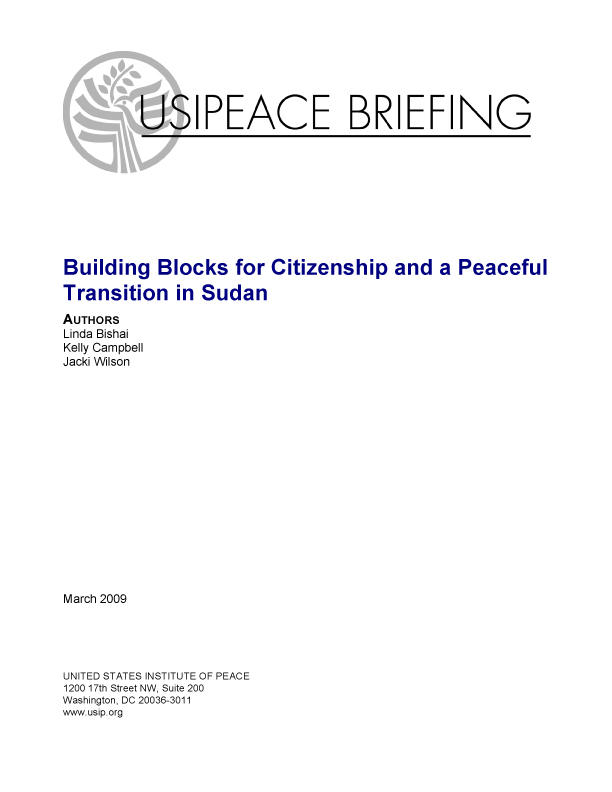Building Blocks for Citizenship and a Peaceful Transition in Sudan
Sudan’s upcoming elections in 2009 raise hopes and concerns for the country’s future. According to the Comprehensive Peace Agreement (CPA), signed in 2005 between the ruling National Congress Party (NCP) and the Sudan People’s Liberation Movement (SPLM), Sudan is scheduled to hold national and state level elections in 2009.

Background
The elections are to take place for president of the Government of National Unity, president of the Government of Southern Sudan, members of the National Assembly and the South Sudan Legislative Assembly, and governors and state legislatures in all of Sudan’s 25 states. However, delays in each phase of electoral preparation—including the passage of the electoral law, the appointment of the nine National Election Commission members responsible for overseeing elections, and the census—have raised doubts about whether the elections will be held within the timeframe outlined in the CPA.
Sudan has never experienced a peaceful transition from one elected government to another. Past elections, particularly in the 1950s and 1960s, were accompanied by violent clashes and often followed by coups. This election will also take place against a backdrop of instability caused by electoral delays, increased tensions over the Sudan census-taking, the arrest warrant for Sudanese President Omar Bashir by the International Criminal Court, the ongoing conflict in Darfur and unresolved disputes over the North/South border and resources in Abyei, the Nuba Mountains and Southern Kordofan.
About the Authors
This USIPeace Briefing was written by Linda Bishai, Jacki Wilson, senior program officers in the Education and Training Center International, and Kelly Campbell, senior program assistant in the Center for Conflict Analysis and Prevention, all at the United States Institute of Peace. The views expressed here are not necessarily those of USIP, which does not advocate specific policies.
The United States Institute of Peace is an independent, nonpartisan institution established and funded by Congress. Its goals are to help prevent and resolve violent international conflicts, promote post-conflict stability and development, and increase conflict management capacity, tools, and intellectual capital worldwide. The Institute does this by empowering others with knowledge, skills, and resources, as well as by directly engaging in peacebuilding efforts around the globe.



